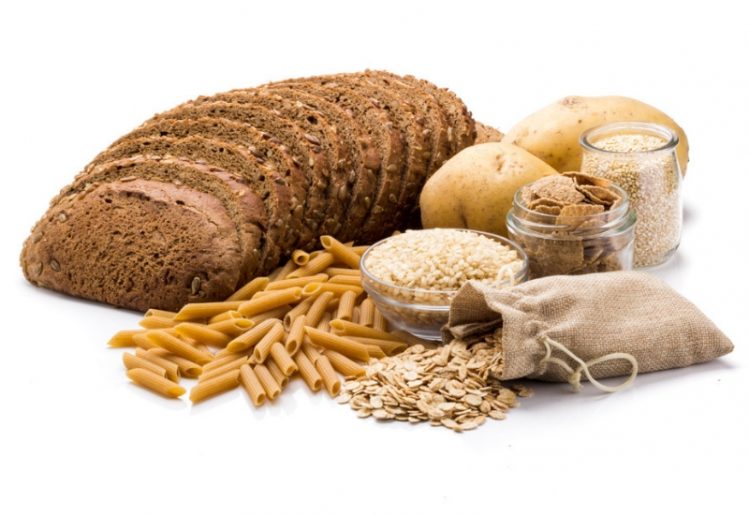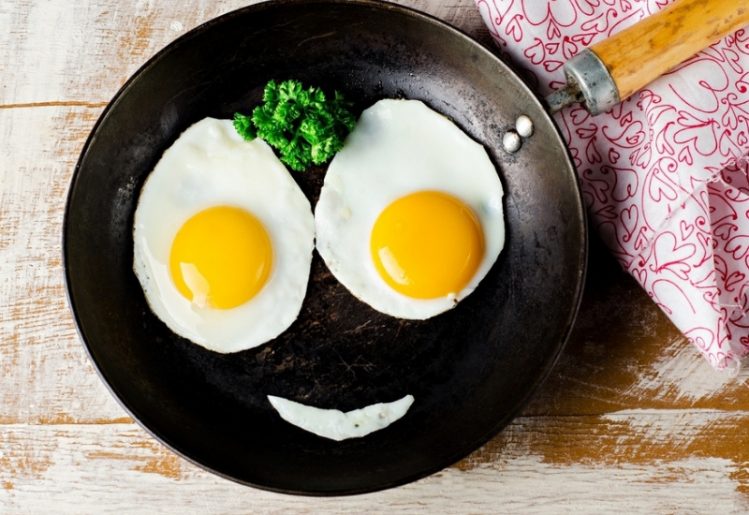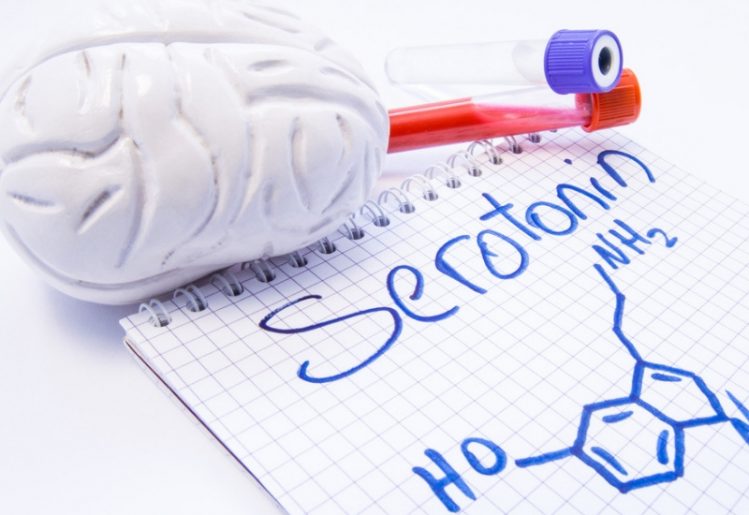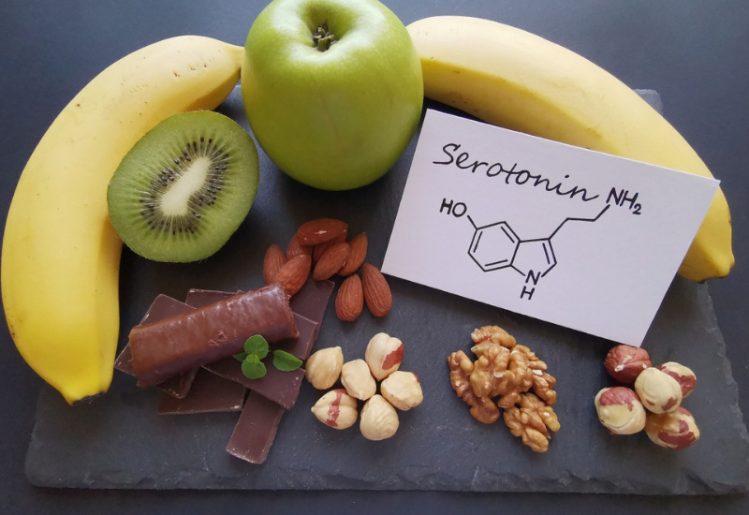In the United States alone, one out of five adults suffers from some type of mental illness, although countless others go undiagnosed. In fact, many people ignore their mental health until theyy develop a serious condition that affects their day-to-day lives. May is Mental Health Month, making this a perfect time to learn about natural ways to ensure you remain mentally fit and healthy.
Why is Mental Health Month So Important?
 Many people tend to ignore their mental health until they develop a noticeable problem that begins to affect their daily lives. Today, more than 10 million adults in the U.S. suffer from depression or some other type of mental illness. Acknowledging that many of these conditions are preventable, mental health professionals have collaborated on creating a month devoted to the proper care of the mind.
Many people tend to ignore their mental health until they develop a noticeable problem that begins to affect their daily lives. Today, more than 10 million adults in the U.S. suffer from depression or some other type of mental illness. Acknowledging that many of these conditions are preventable, mental health professionals have collaborated on creating a month devoted to the proper care of the mind.
Mental Health Month was created to raise awareness of the issues that can affect mental health. While it is important to help people learn more about the conditions that can affect their mental health, this month is also intended to show how you can keep your mind healthier. By employing practices that strengthen cognitive abilities and protect emotional health, the risks of developing depression, anxiety and many other mental disorders can be minimized.
The Global Pandemic’s Affect on Mental Health
Currently, millions across the nation are facing mental health challenges as a result of social isolation and shelter-in-place orders. Adding to the stress caused by worrying about the coronavirus pandemic, people are also facing the dangers that isolation poses to our emotional and psychological health. The problem is worsened by the fact that many of the activities we employ to keep our minds healthy, such as socializing or hitting the gym, are now prohibited.
Depression, in particular, is a significant mental health problem, affecting more than 264 million people around the world. Even though we’re all facing lock-downs that complicate the issue, it’s still important to engage in activities that help elevate mood. Studies have found that by boosting your mood, depressive episodes become less likely to occur.
Engaging in Mood-Elevating Activities Boosts Mental Health
A study conducted at the United Kingdom’s University of Oxford looked at how mood-regulating activities affected 58,328 test subjects. They divided the participants into a low-mood group and a high-mood group. The researchers found that engaging in mood-regulating activities had a noticeable effect on the mental states of subjects in both groups. Specifically, engaging in activities designed to boost mood helped reduce the chances that the individuals would suffer depressive episodes. Those who did not engage in mood-elevating activities experienced more frequent and more severe depressive episodes.
The goal of the researchers is to find a more effective means of treating depression, since medication only works with about half of all patients. The findings in this study suggest that depressive episodes can be prevented through activities that stimulate positive moods and feelings.
This type of solution will require people to take a more active role in their mental health care, and patients will have to recognize when they’re at risk for suffering from a depressive episode. Once these conditions are recognized, they can engage in activities that they know will boost their moods. In this way, they may be able to manage their mental health without having to rely on medication that may not really help.
Take Steps to Protect Your Mental Health Every Day
Get More Physical Activity
In many cities, fitness centers are closed and public recreation is restricted, especially for those who don’t wear face masks. This doesn’t mean you can’t get the exercise that’s essential for naturally maintaining your mental health. You can lift free weights at home, jump rope or run in place as you watch TV. You can also wear a bandanna or scarf over your face when jogging or bicycling by yourself.
Step Outside
 Even though you’re abiding by the rules of a lock-down, you should still step outside for 30 minutes to an hour each day. Staying locked up in your home will compel you to breathe in the same stale air, which will contain more carbon dioxide as you exhale each breath. Studies have proven that getting outside and breathing fresh air improves mood, cognitive abilities and reduces the risks of depressive episodes. You don’t have to do anything. Just go outside and sit on your porch, or rest under a tree.
Even though you’re abiding by the rules of a lock-down, you should still step outside for 30 minutes to an hour each day. Staying locked up in your home will compel you to breathe in the same stale air, which will contain more carbon dioxide as you exhale each breath. Studies have proven that getting outside and breathing fresh air improves mood, cognitive abilities and reduces the risks of depressive episodes. You don’t have to do anything. Just go outside and sit on your porch, or rest under a tree.
Take a Dietary Supplement
Taking a dietary supplement that is engineered to support healthy mood can help you to manage your mental health. Research has shown that certain preparations of 5-HTP and tryptophan, which are both active compounds that are precursors to the mood-boosting hormone serotonin, can help to maintain a healthy mood.
It’s not possible to supplement effectively with serotonin, as it does not cross the blood-brain barrier. However, unlike serotonin, 5-HTP can cross the blood-brain barrier. Once there, it promotes more serotonin production in the brain, so mood is enhanced. These compounds both work to give the brain the materials it needs to produce healthy levels of serotonin.
Meditate
Even if you have never considered meditation in the past, it’s a good practice to pick up. It provides you with an opportunity to relax and step away from your worries for just a few minutes. Typically, you should start out by meditating for just five minutes and gradually work your way up to 30- or 60-minute sessions. There are plenty of videos online that demonstrate proper meditation techniques, or you can listen to a guided meditation video. Any method you choose will be effective in helping you reduce stress and boost your mood.
 Reservatrol is found naturally in red grapes, red wine, peanuts, pistachios, blueberries, raspberries and dark chocolate. The compound is most highly concentrated in the skin of red grapes. This polyphenol antioxidant is an antimicrobial compound produced by plants to protect against environmental challenges such as harsh climate changes and too much dangerous ultraviolet light. In recent years, researchers have discovered promising ways that resveratrol may slow down the aging process, as it offers the body a multitude of protections.
Reservatrol is found naturally in red grapes, red wine, peanuts, pistachios, blueberries, raspberries and dark chocolate. The compound is most highly concentrated in the skin of red grapes. This polyphenol antioxidant is an antimicrobial compound produced by plants to protect against environmental challenges such as harsh climate changes and too much dangerous ultraviolet light. In recent years, researchers have discovered promising ways that resveratrol may slow down the aging process, as it offers the body a multitude of protections. With so many benefits spread across many facets of physical and mental health, resveratrol deserves a prominent spot in everyone’s daily diet. Because many Western diets do not naturally include this compound, you may have to be purposeful about consuming it; you can find a high-quality resveratrol supplement online or at your local health food store.
With so many benefits spread across many facets of physical and mental health, resveratrol deserves a prominent spot in everyone’s daily diet. Because many Western diets do not naturally include this compound, you may have to be purposeful about consuming it; you can find a high-quality resveratrol supplement online or at your local health food store. The first step in properly caring for stress and mental health concerns is
The first step in properly caring for stress and mental health concerns is  Now more than ever, you need to be diligent about practicing self-care. This comes in many different forms, depending on your personal preferences and needs. For some people, this may mean
Now more than ever, you need to be diligent about practicing self-care. This comes in many different forms, depending on your personal preferences and needs. For some people, this may mean  In a recent study, conducted at New York’s Columbia University, it was found that refined carbohydrates contributed toward insomnia in women aged 50 and over. Insomnia was especially common when the refined carbohydrates had high sugar content.
In a recent study, conducted at New York’s Columbia University, it was found that refined carbohydrates contributed toward insomnia in women aged 50 and over. Insomnia was especially common when the refined carbohydrates had high sugar content. You should avoid sugary drinks as much as possible, because these are the worst culprits for
You should avoid sugary drinks as much as possible, because these are the worst culprits for  Mondays give many people the blues, but one particular Monday has been
Mondays give many people the blues, but one particular Monday has been  If you are feeling depressed this January, the first step towards feeling better is to acknowledge the problem and seek treatment. There are a variety of treatment options for depression. Therapy, particularly cognitive behavioral therapy, has been found to be effective in treating depression. In addition, there are medications that can help in more serious cases.
If you are feeling depressed this January, the first step towards feeling better is to acknowledge the problem and seek treatment. There are a variety of treatment options for depression. Therapy, particularly cognitive behavioral therapy, has been found to be effective in treating depression. In addition, there are medications that can help in more serious cases. Because tryptophan is found in a number of foods we eat all year long, it can’t be said that eating turkey is any more likely to cause sleepiness than eating other foods. On holidays like Thanksgiving, in all likelihood it’s the high amount of fats, sugar and carbs in the meal that are zapping your energy — not the turkey. Even so, the tryptophan in turkey does play an important role in human health, and eating turkey on Thanksgiving can benefit you in a few different ways.
Because tryptophan is found in a number of foods we eat all year long, it can’t be said that eating turkey is any more likely to cause sleepiness than eating other foods. On holidays like Thanksgiving, in all likelihood it’s the high amount of fats, sugar and carbs in the meal that are zapping your energy — not the turkey. Even so, the tryptophan in turkey does play an important role in human health, and eating turkey on Thanksgiving can benefit you in a few different ways. While there are many more natural foods that provide serotonin, eating these foods actually won’t increase serotonin levels in your brain. This is because serotonin is unable to cross the blood-brain barrier once ingested, so it will never make it to the parts of the brain that need the hormone. The truth about tryptophan is that it’s vital for the production of serotonin, since it is able to cross the blood-brain barrier. Once there, it begins contributing to the production of serotonin. Therefore, to ensure adequate serotonin levels in the brain, it’s necessary to eat foods that are rich in tryptophan, such as most types of meat.
While there are many more natural foods that provide serotonin, eating these foods actually won’t increase serotonin levels in your brain. This is because serotonin is unable to cross the blood-brain barrier once ingested, so it will never make it to the parts of the brain that need the hormone. The truth about tryptophan is that it’s vital for the production of serotonin, since it is able to cross the blood-brain barrier. Once there, it begins contributing to the production of serotonin. Therefore, to ensure adequate serotonin levels in the brain, it’s necessary to eat foods that are rich in tryptophan, such as most types of meat.